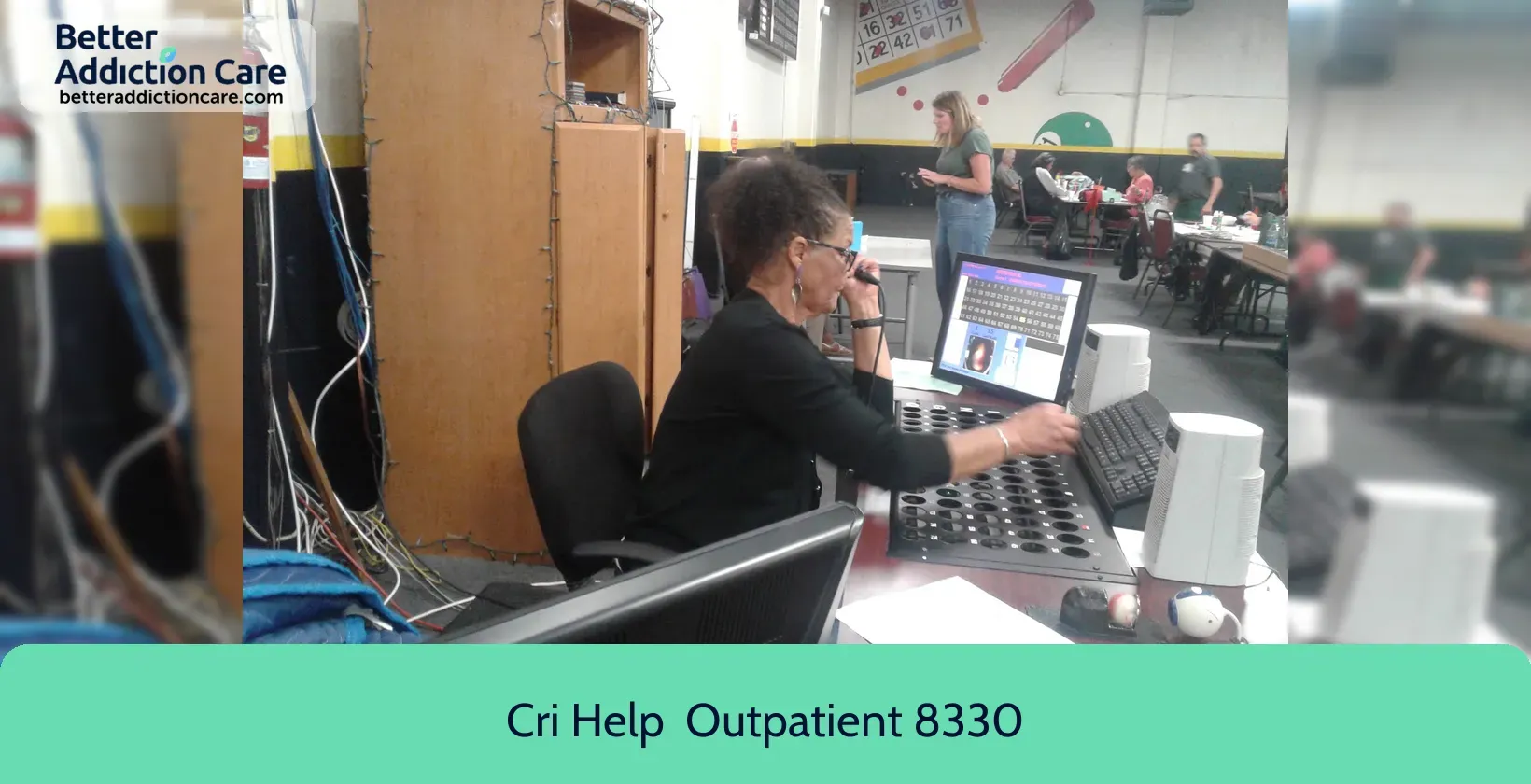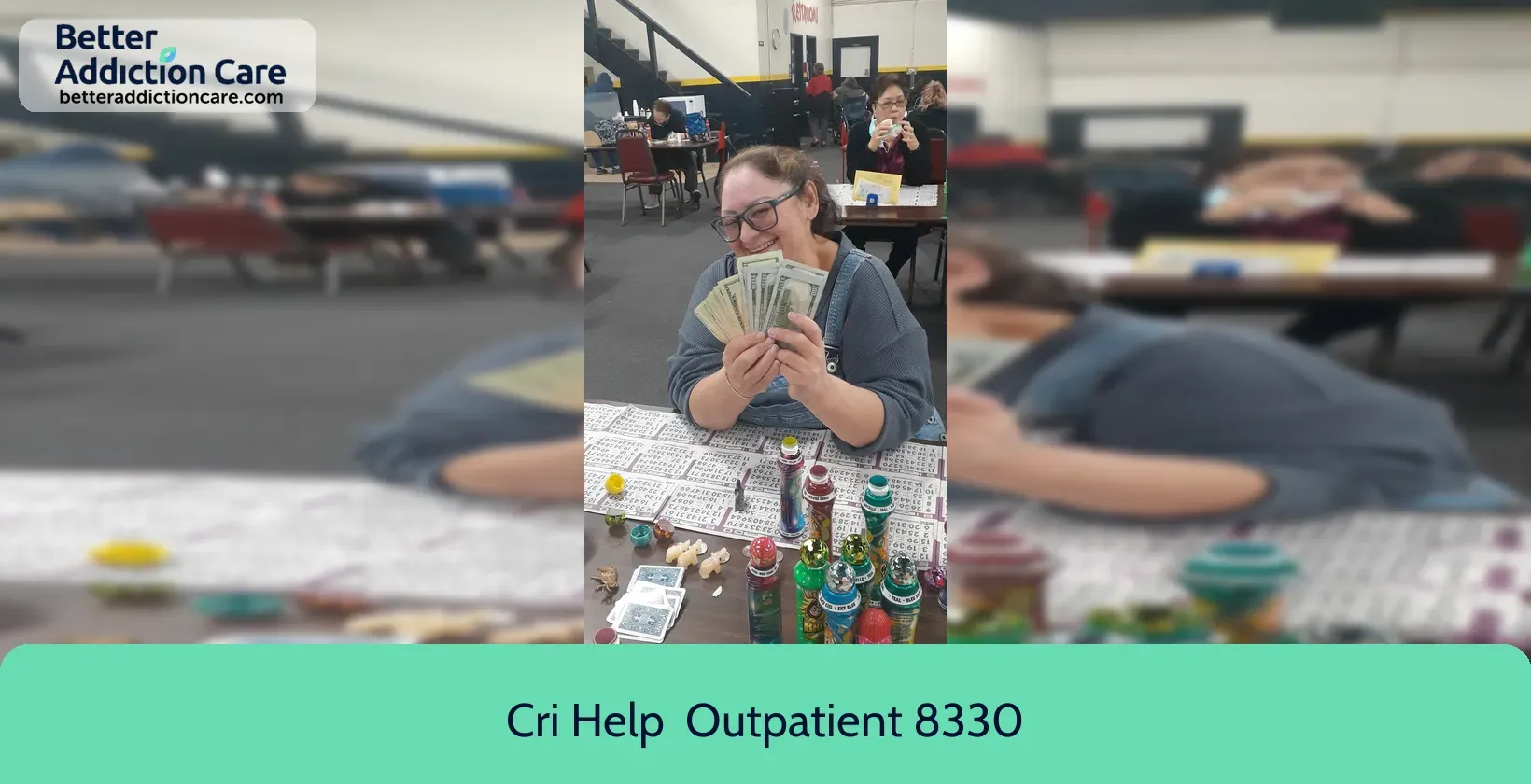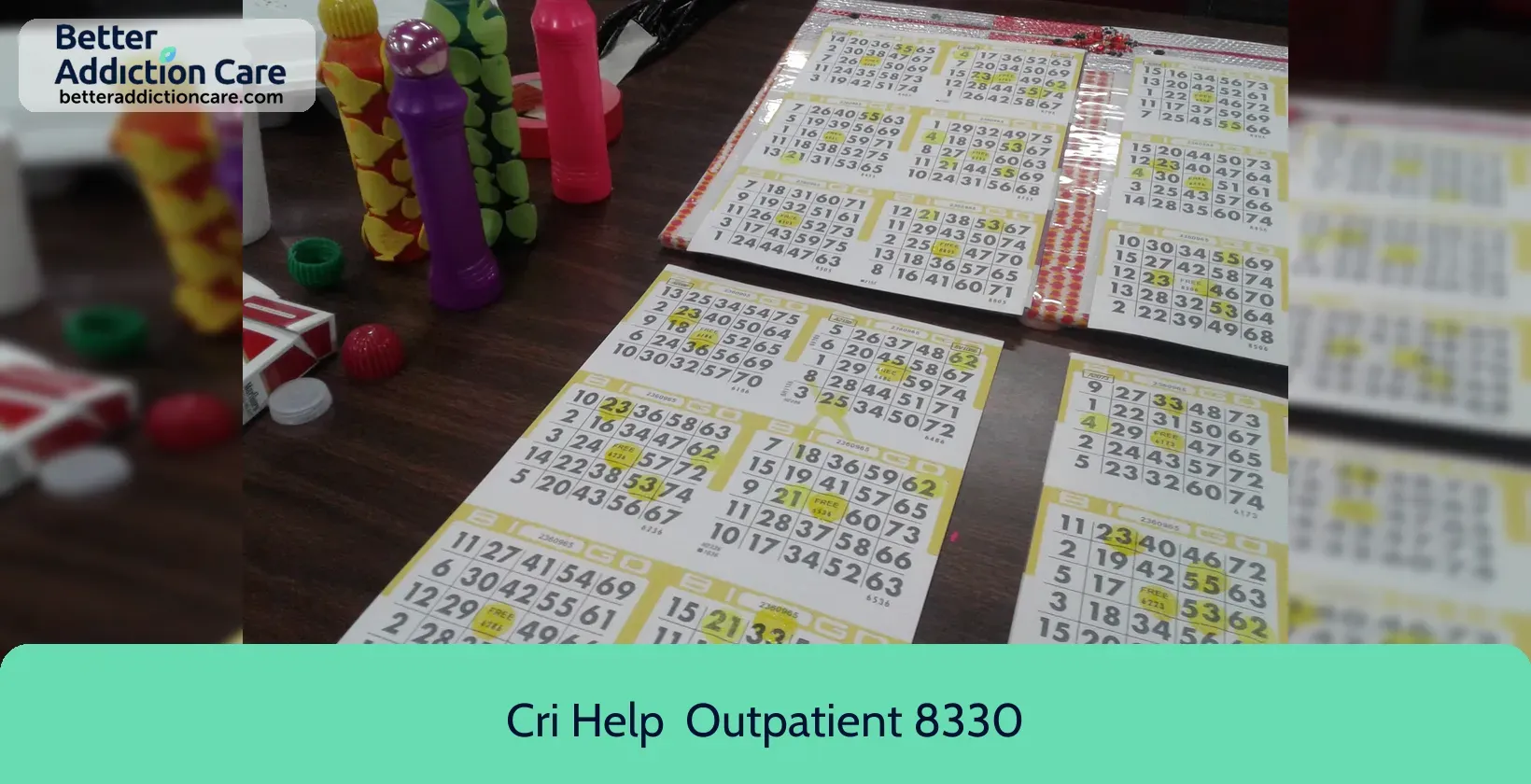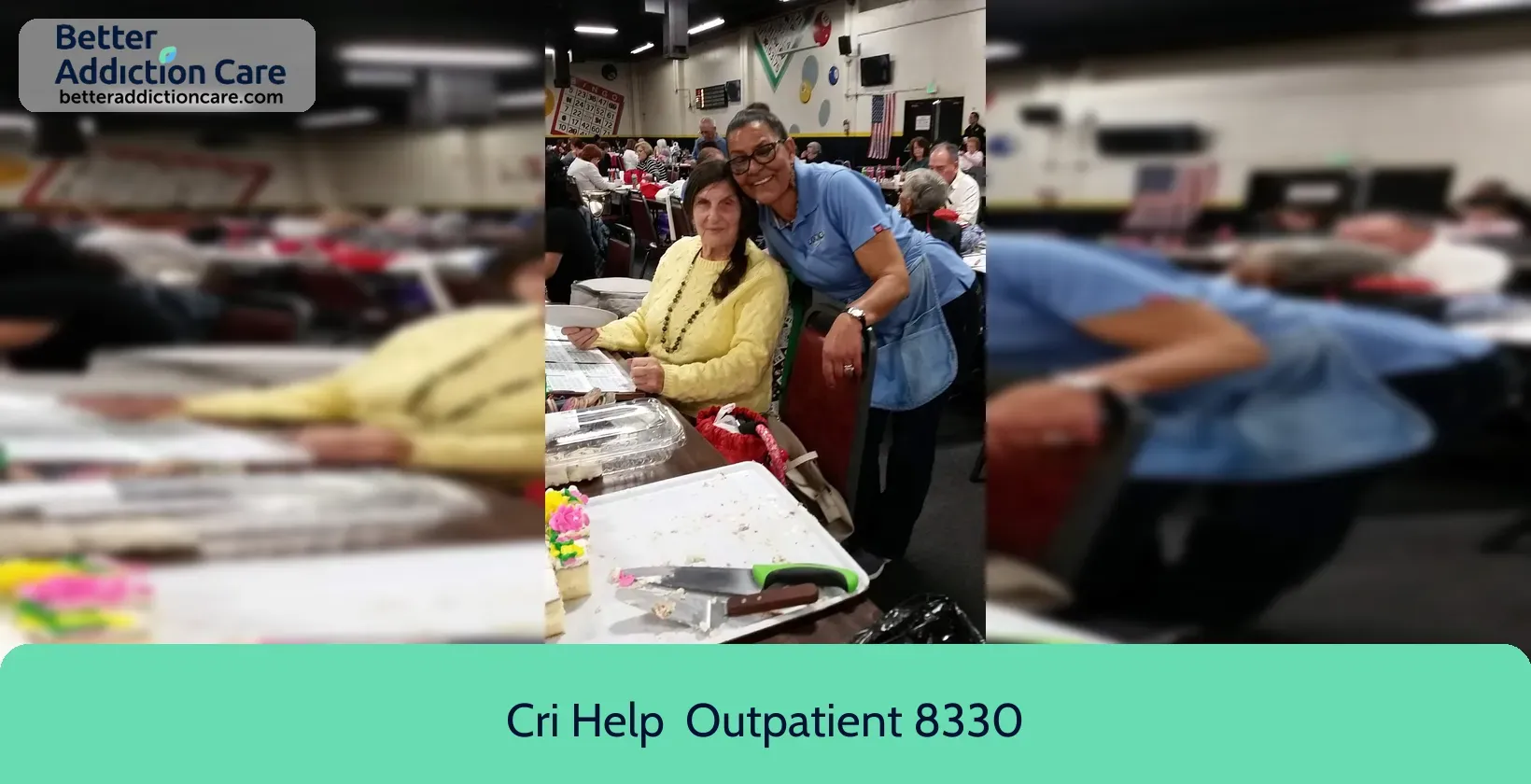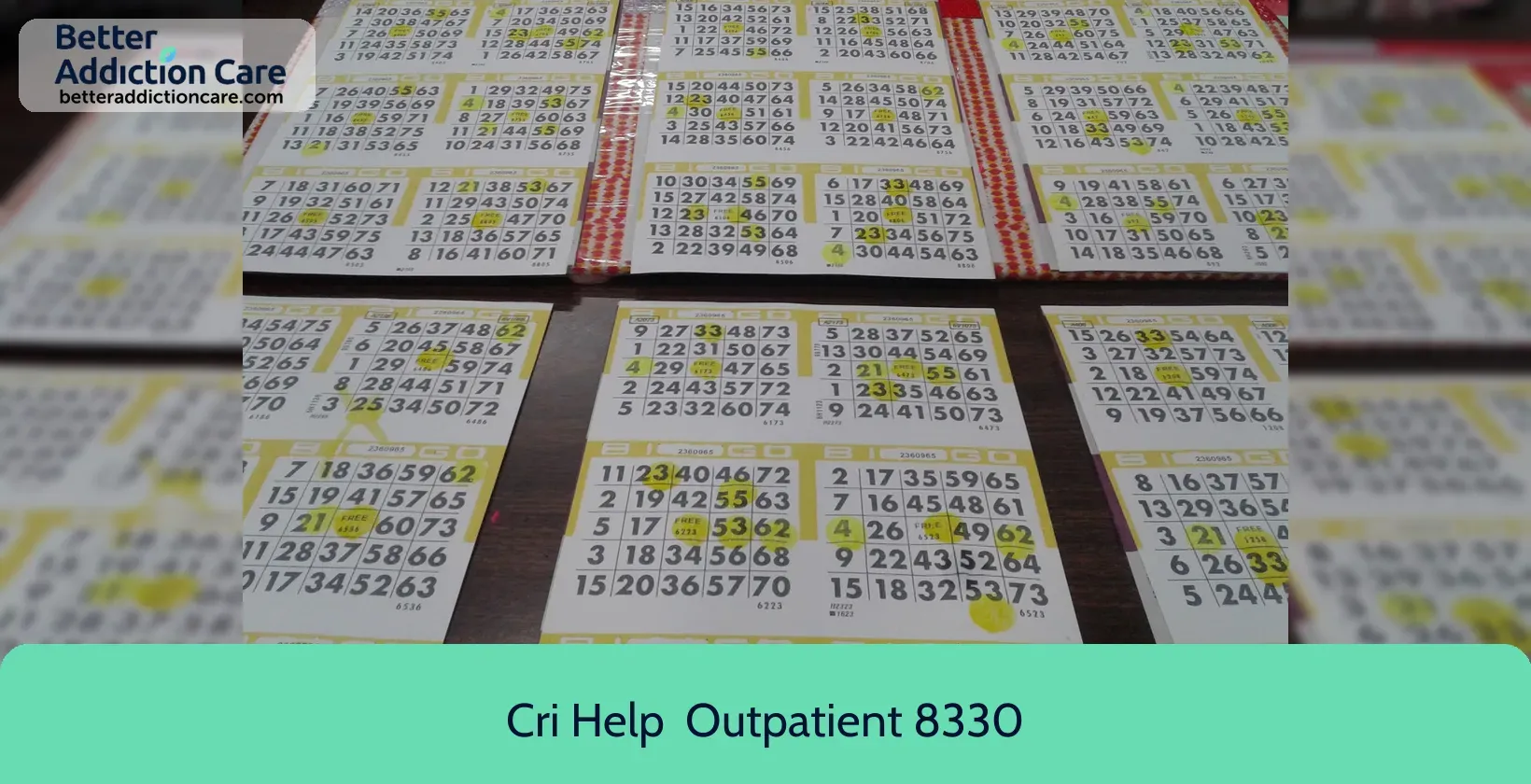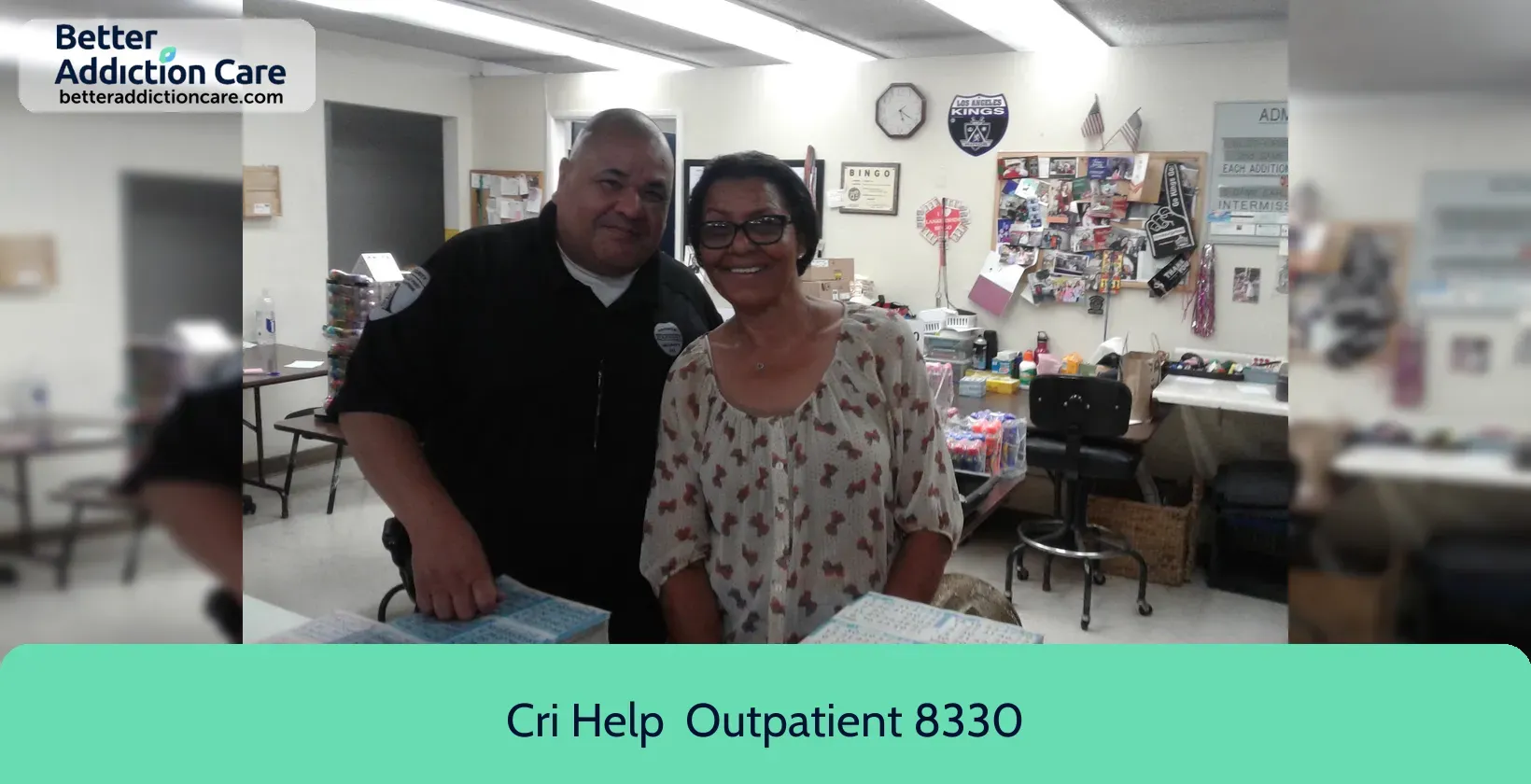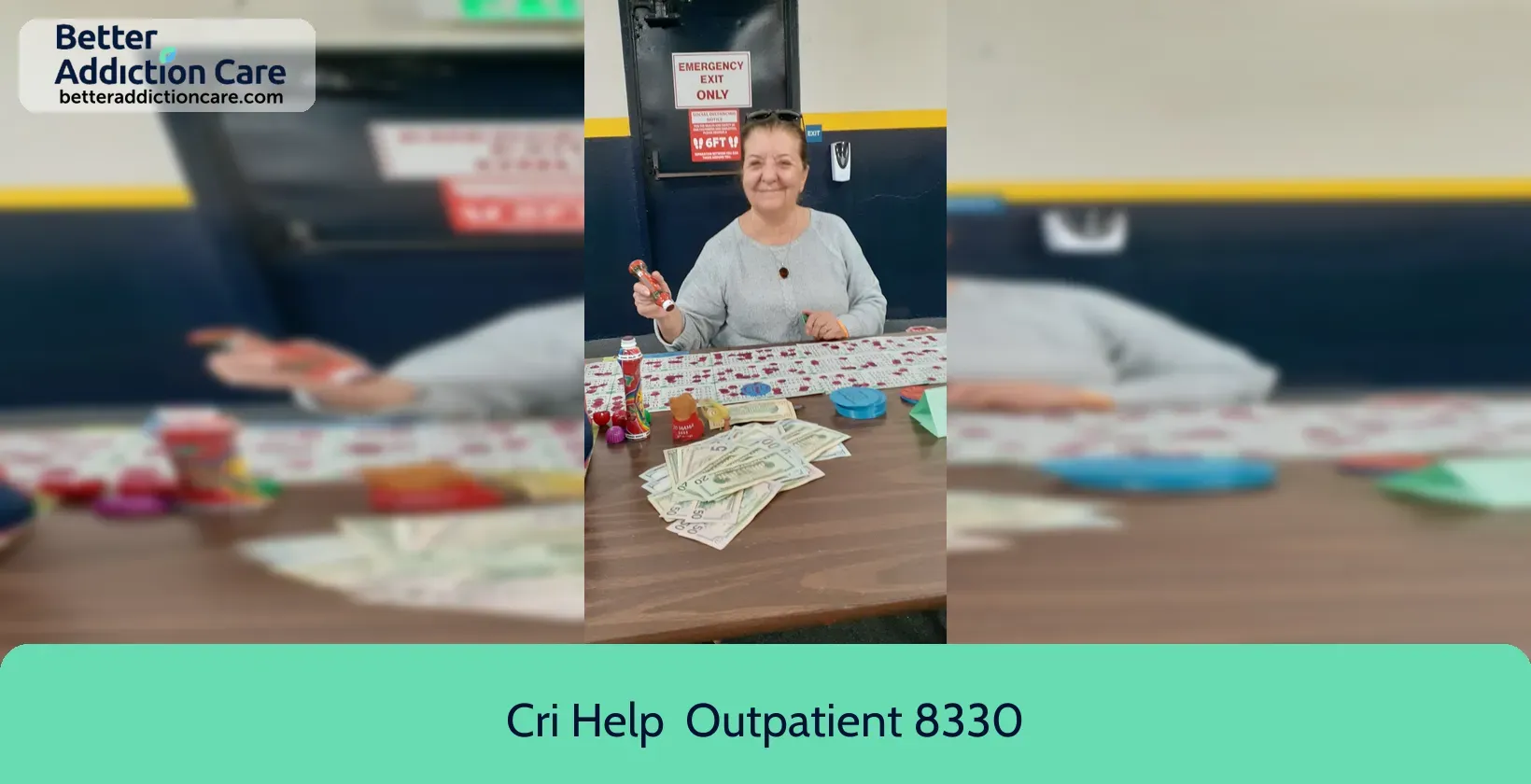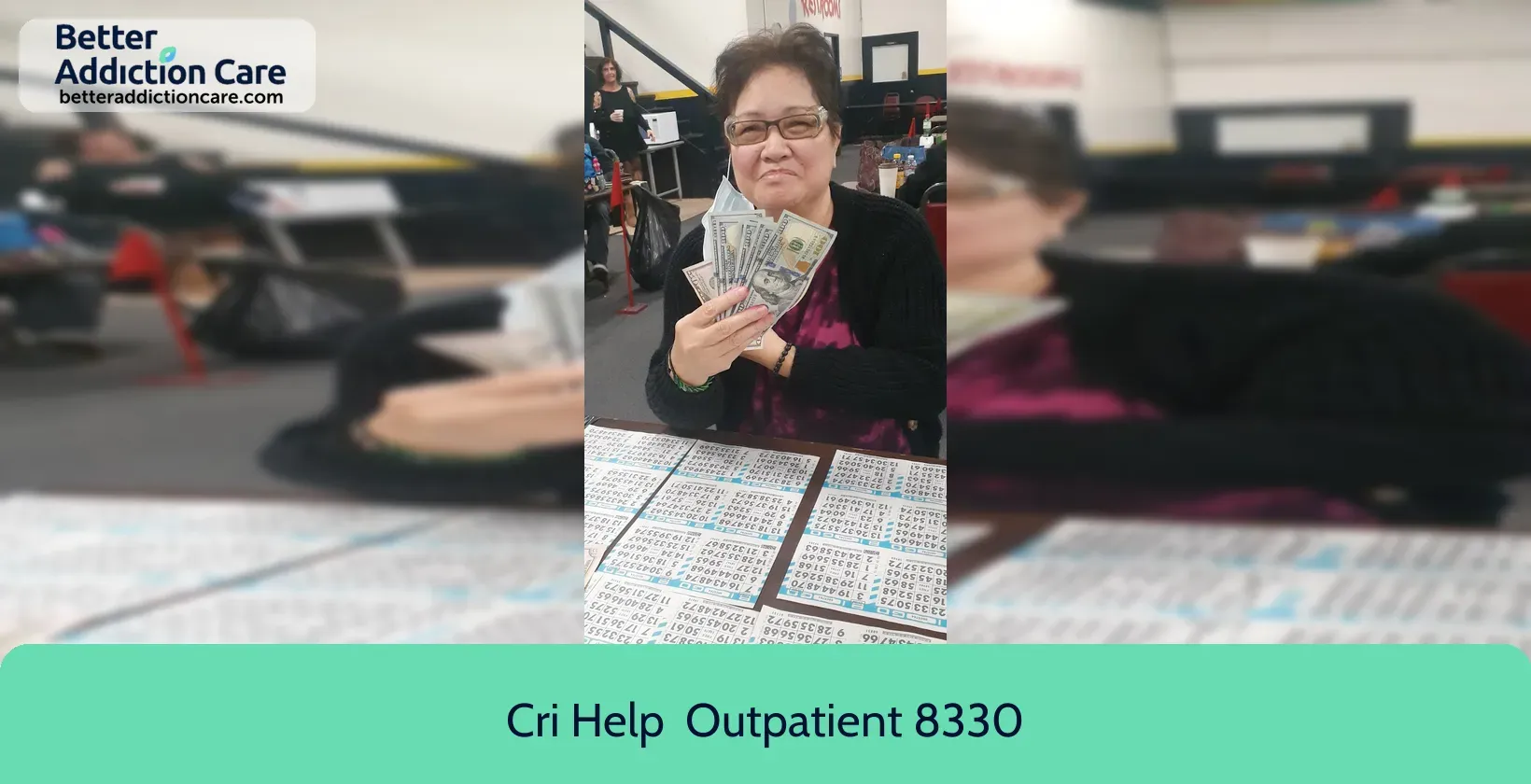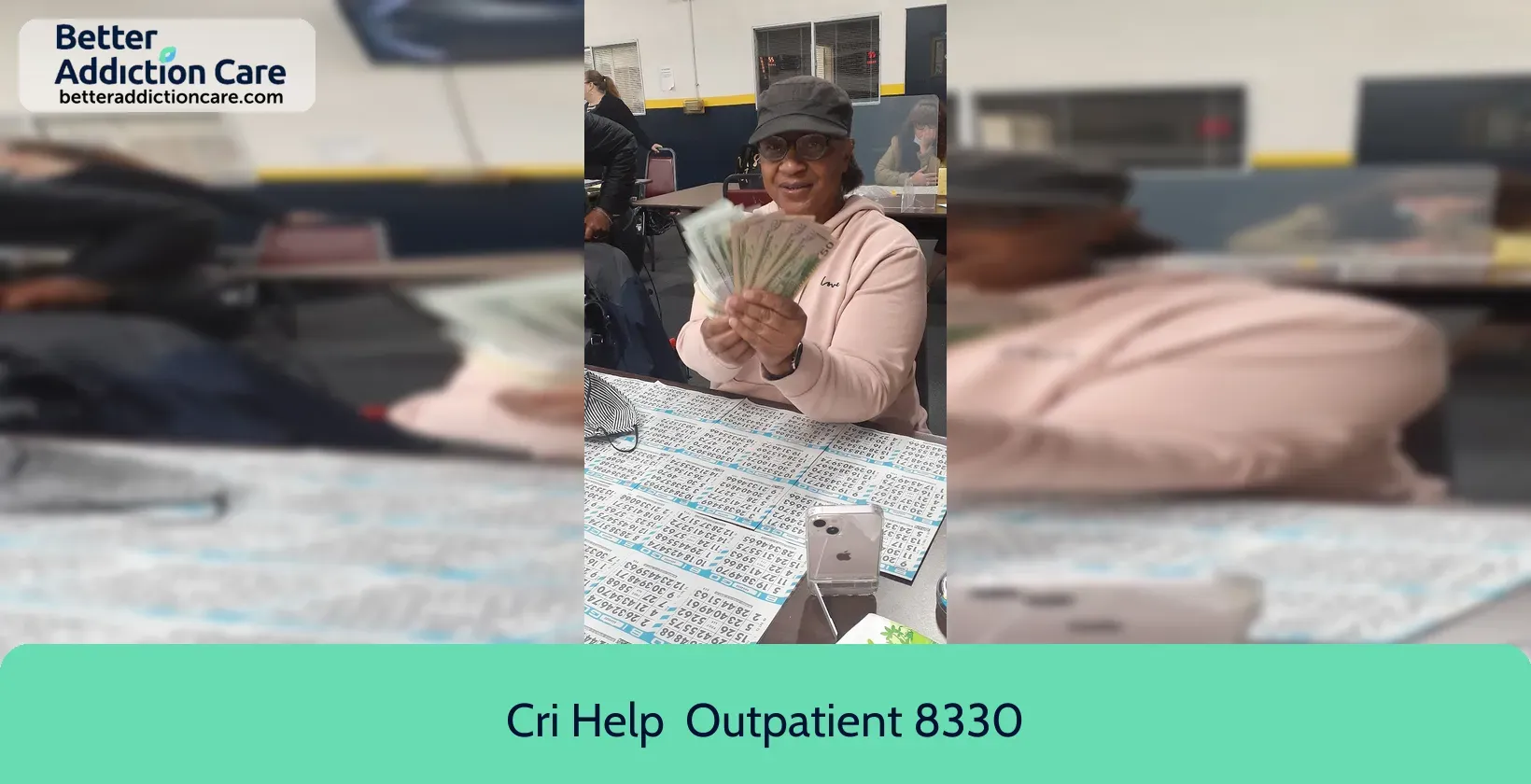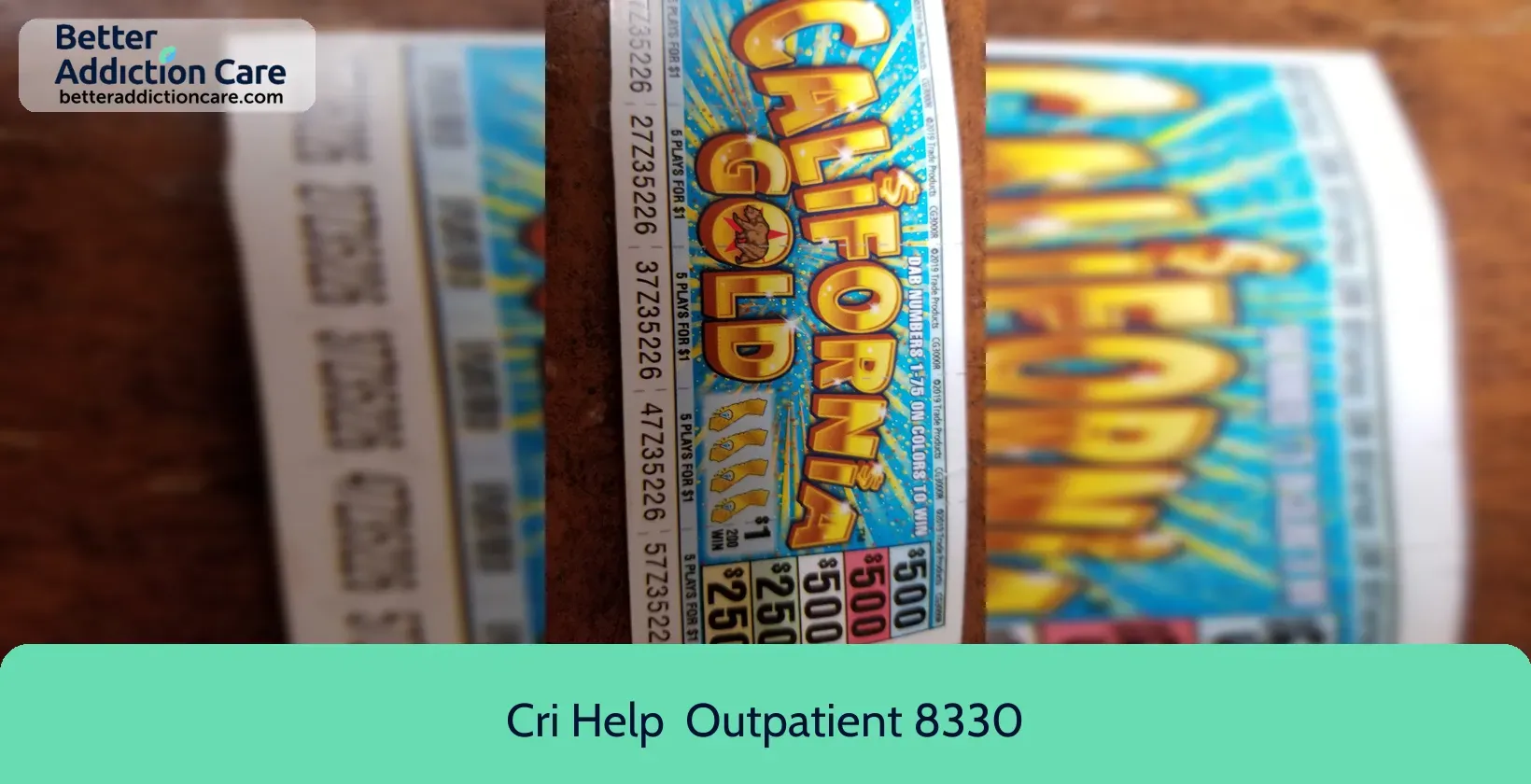Cri Help - Outpatient 8330 Lankershim Boulevard
Overview
Cri Help - Outpatient 8330 Lankershim Boulevard is a substance abuse treatment center for people seeking treatment near Los Angeles County. As part of their treatment modalities for recovery, Cri Help - Outpatient 8330 Lankershim Boulevard provides 12-step facilitation, family counseling, and group counseling during treatment. Cri Help - Outpatient 8330 Lankershim Boulevard is located in Los Angeles, California, accepting 638 contracts for treatment.
Cri Help - Outpatient 8330 Lankershim Boulevard at a Glance
Payment Options
- 638 contracts
- Medicaid
- Private health insurance
- Cash or self-payment
- Payment assistance (check with facility for details)
Assessments
- Comprehensive mental health assessment
- Comprehensive substance use assessment
Age Groups
- Adults
- Young adults
Operation
- Private non-profit organization
Highlights About Cri Help - Outpatient 8330 Lankershim Boulevard
6.85/10
With an overall rating of 6.85/10, this facility has following balanced range of services. Alcohol Rehabilitation: 8.00/10, Drug Rehab and Detox: 6.00/10, Insurance and Payments: 6.53/10, Treatment Options: 6.85/10.-
Alcohol Rehabilitation 8.00
-
Treatment Options 6.85
-
Insurance and Payments 6.53
-
Drug Rehab and Detox 6.00
Accreditations
Commission on Accreditation of Rehabilitation Facilities (CARF):

CARF accreditation is a prestigious recognition granted to rehabilitation and human service organizations. It signifies that an organization meets high-quality standards, having undergone a rigorous evaluation process. CARF accreditation boosts an organization's credibility and ensures top-notch care for individuals with disabilities, injuries, or healthcare needs.
Treatment At Cri Help - Outpatient 8330 Lankershim Boulevard
Treatment Conditions
- Mental health treatment
- Alcoholism
- Opioid Addiction
- Substance use treatment
- Co-occurring Disorders
Care Levels
- Intensive outpatient treatment
- Detoxification
- Aftercare
- Halfway house
- Outpatient
Treatment Modalities
- 12-step facilitation
- Family counseling
- Group counseling
- Individual psychotherapy
- Trauma-related counseling
Ancillary Services
Languages
- Spanish
Special Programs
- Clients with HIV or AIDS
- Pregnant/postpartum women
- Active duty military
- Clients who have experienced trauma

Additional Locations
Get Help Now
Common Questions About Cri Help - Outpatient 8330 Lankershim Boulevard
Contact Information
Other Facilities in Los Angeles
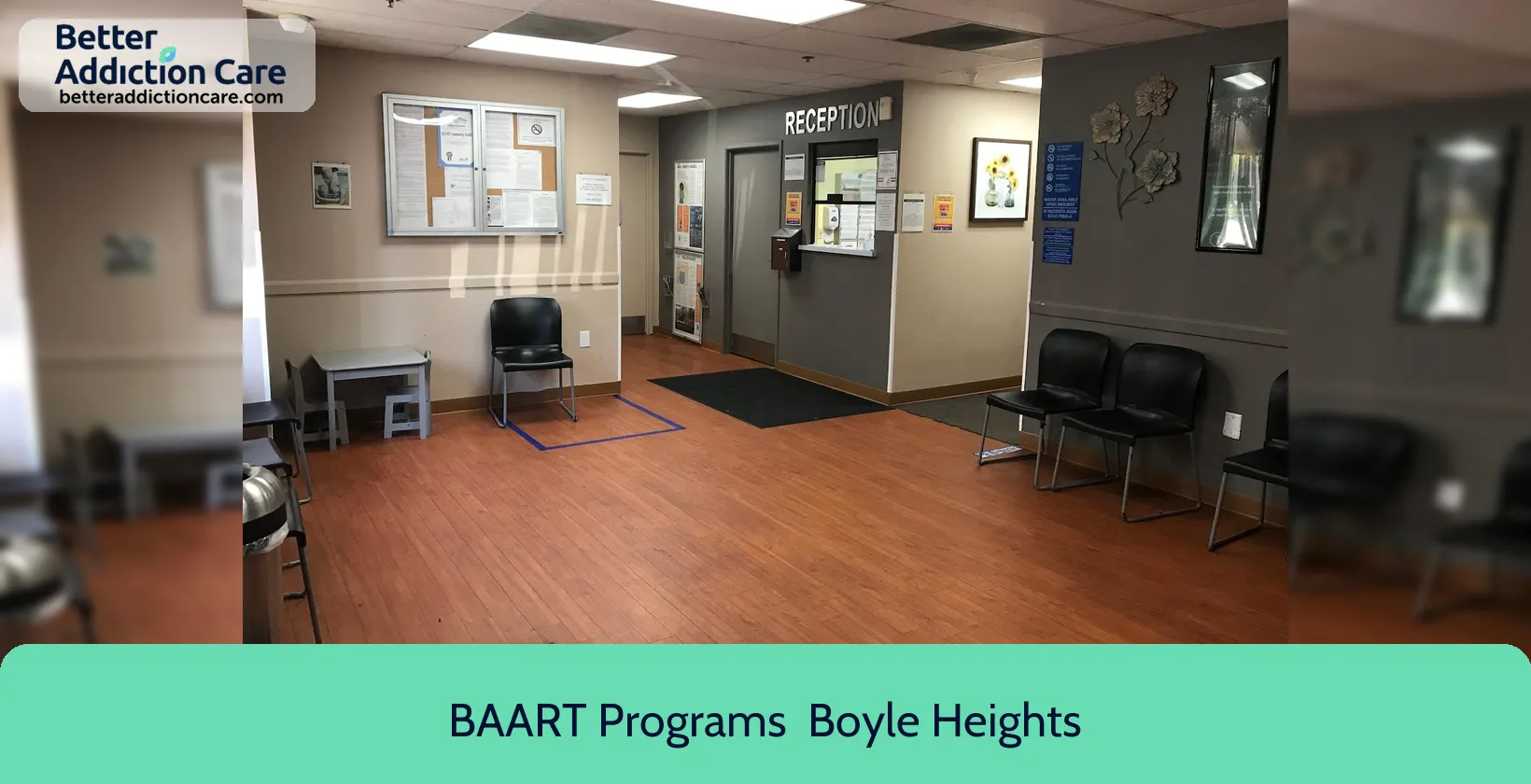
6.82
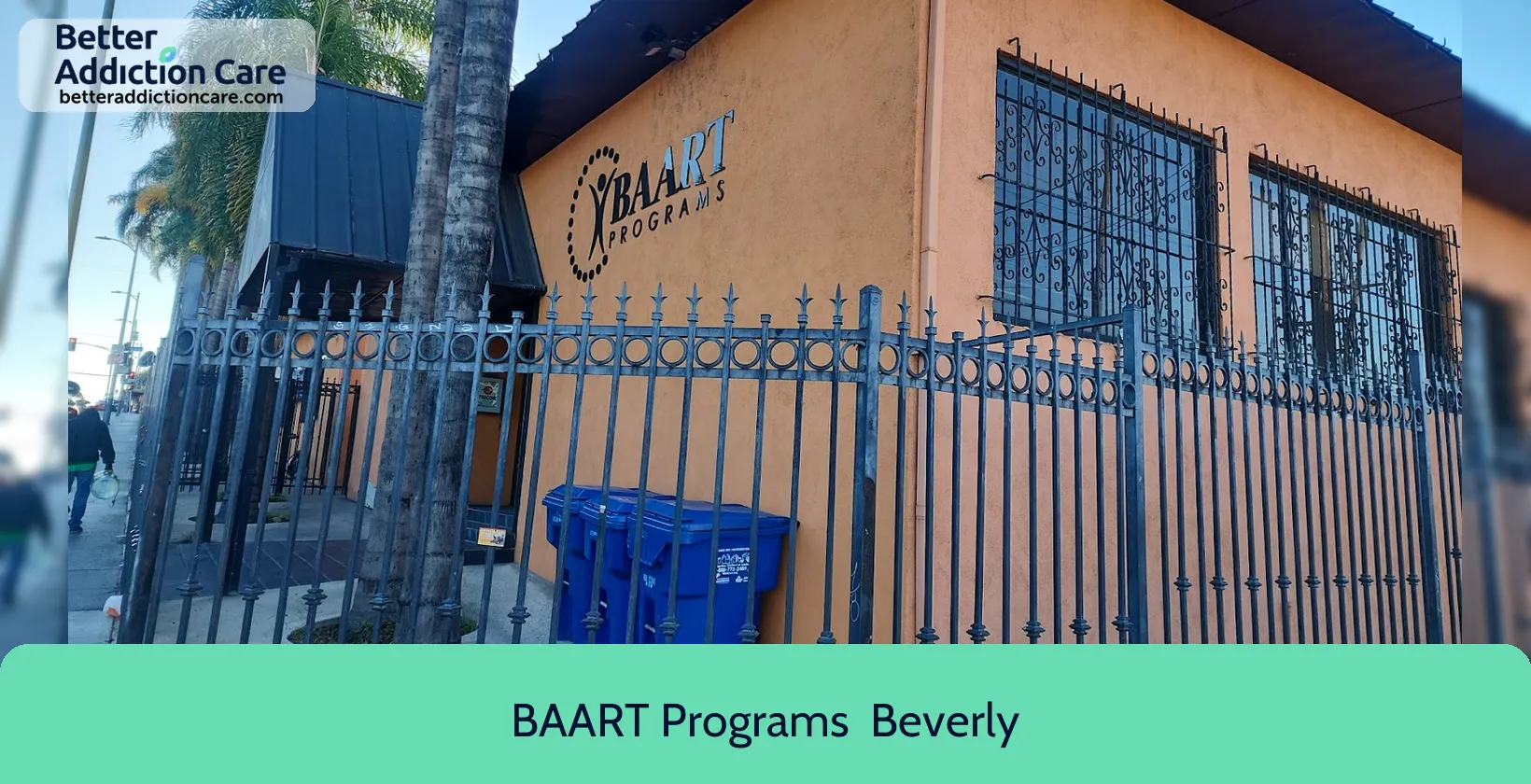
6.71
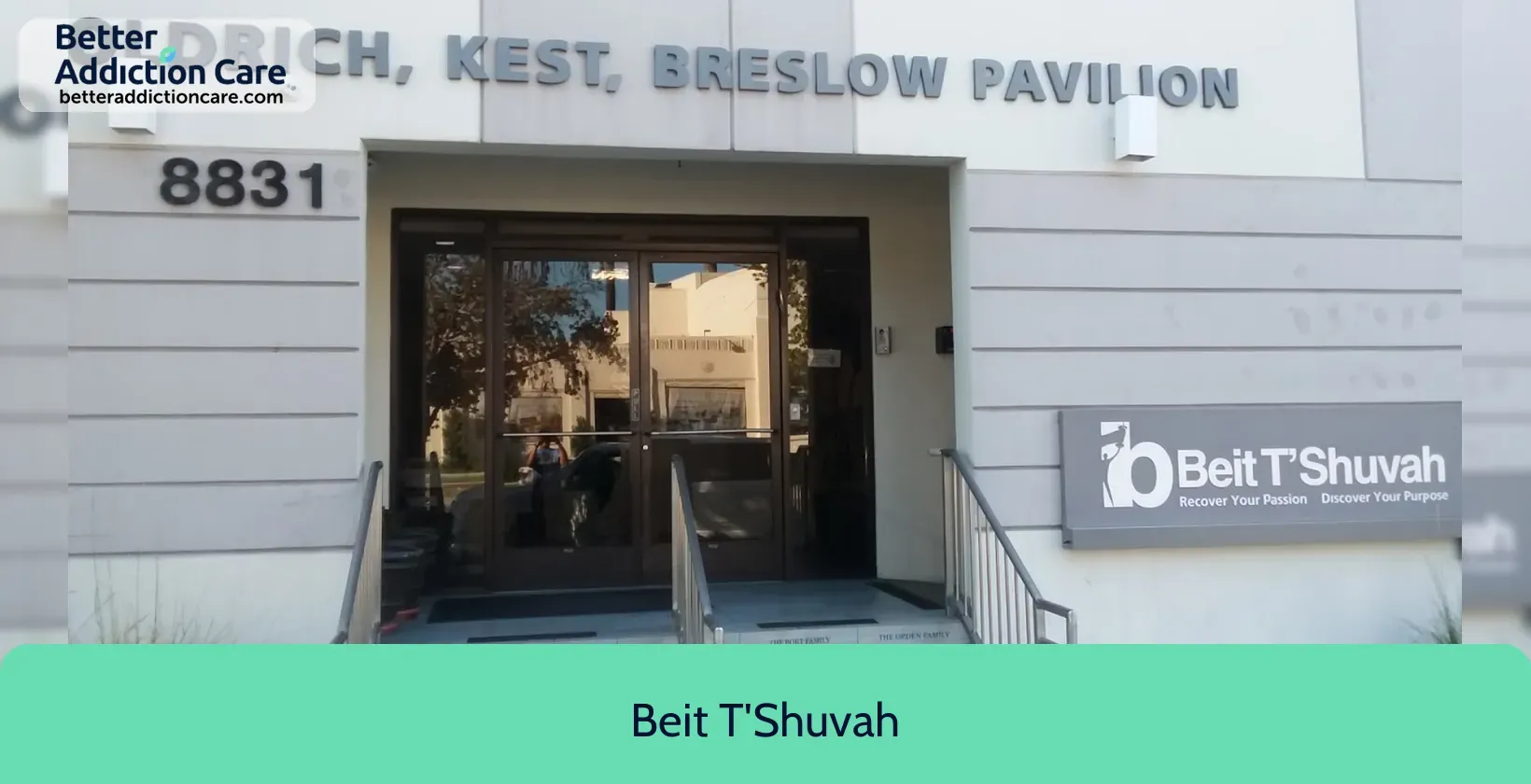
6.87
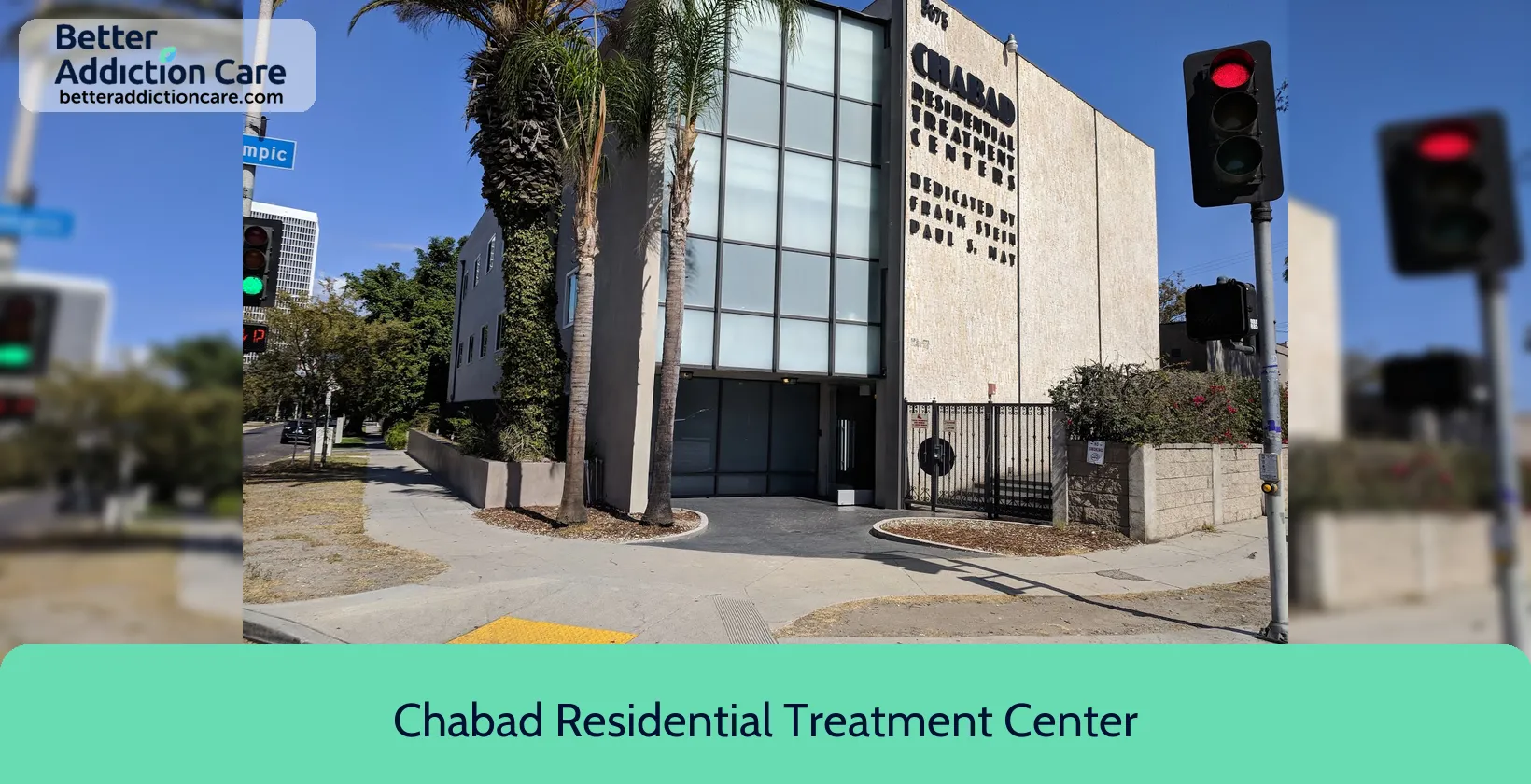
6.84
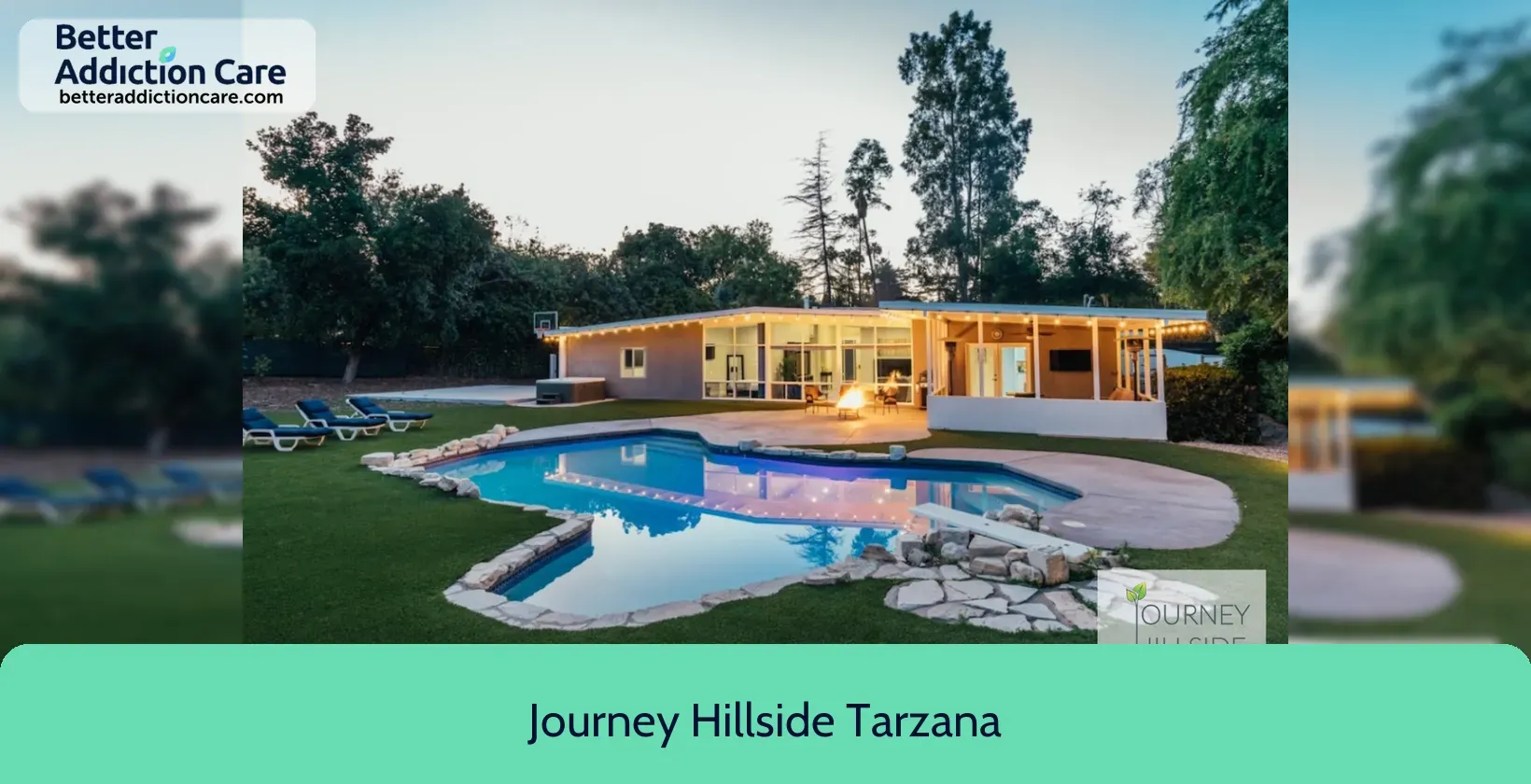
6.72
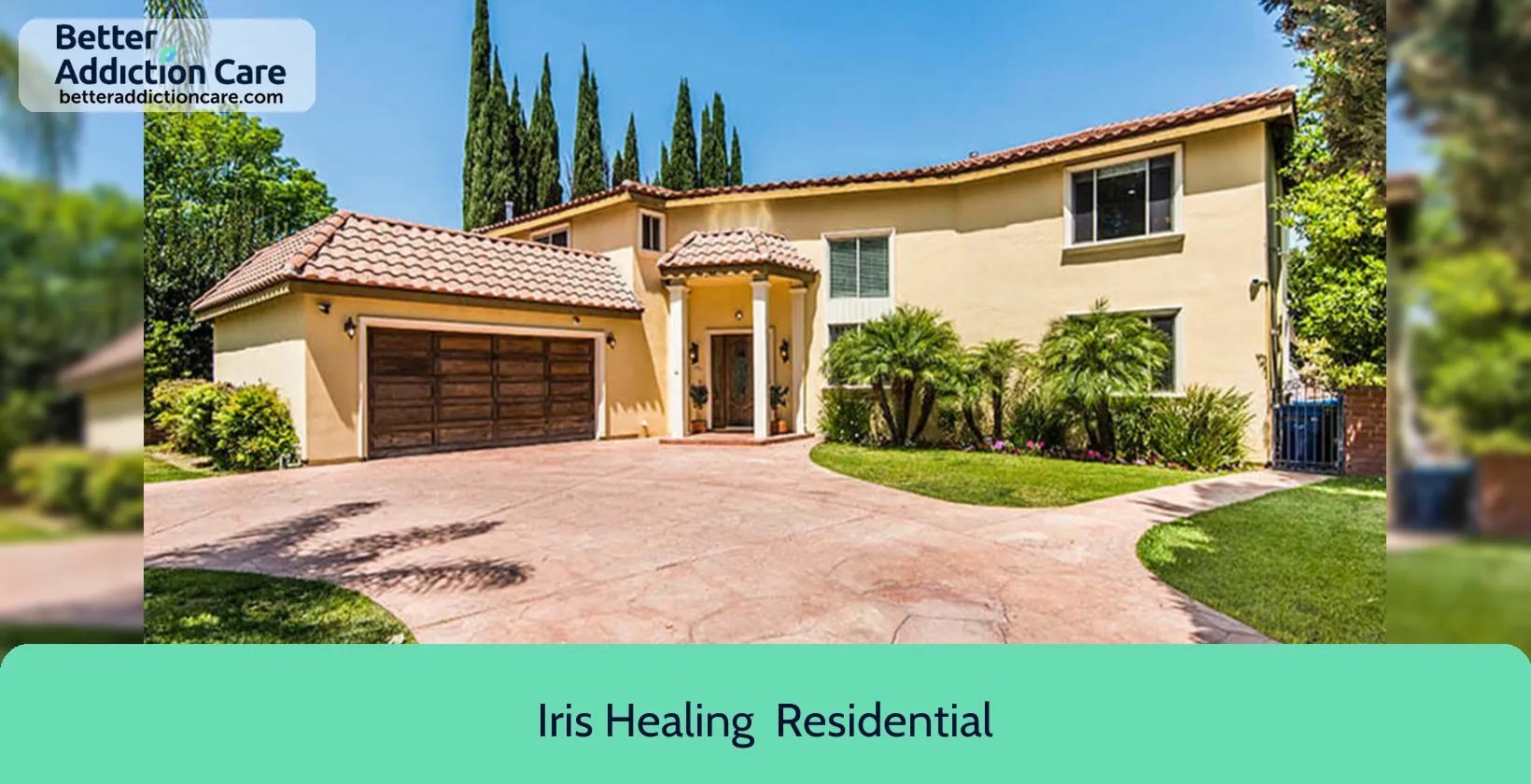
7.11
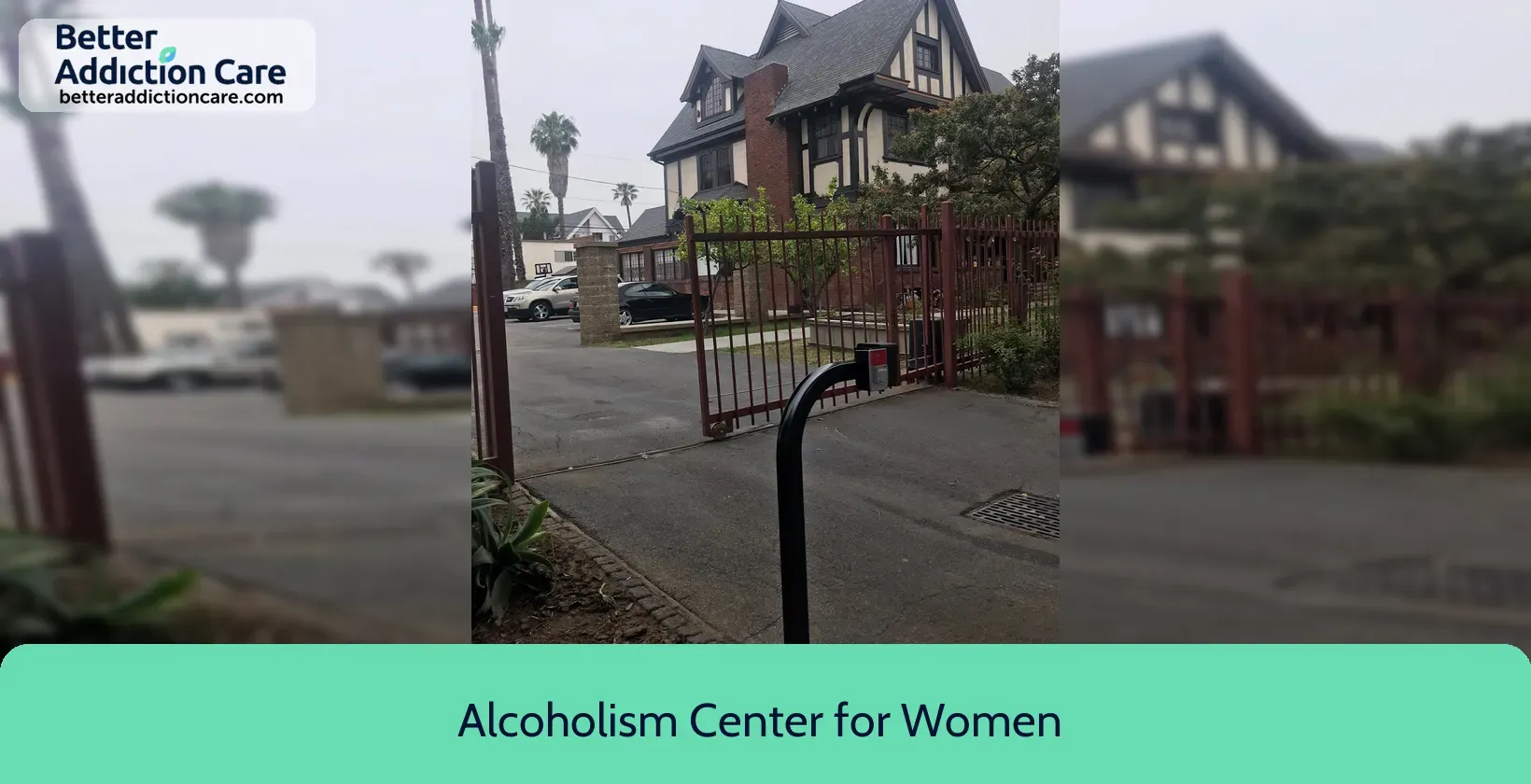
6.91
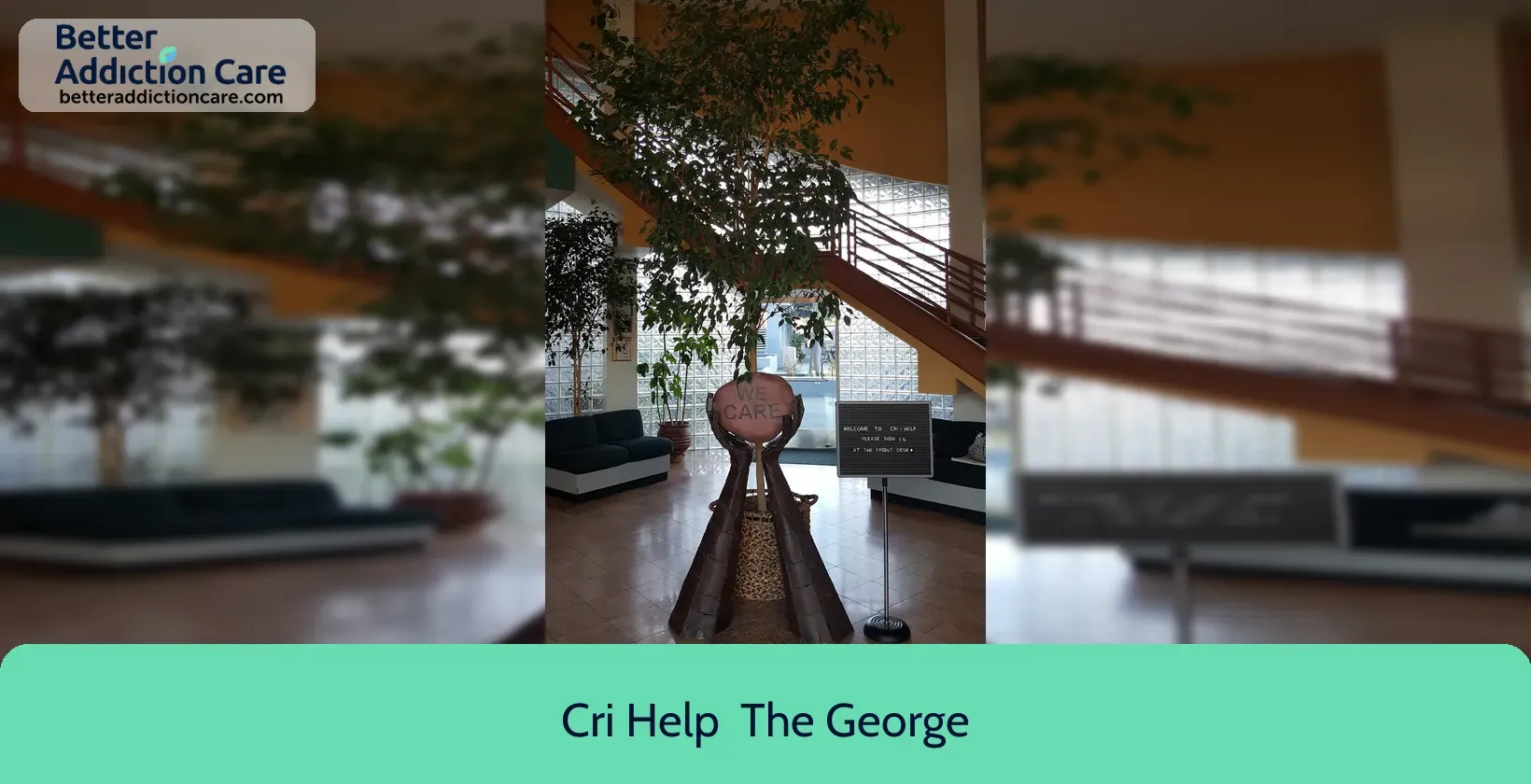
6.95
DISCLAIMER: The facility name, logo and brand are the property and registered trademarks of Cri Help - The George T. Pfleger Center, and are being used for identification and informational purposes only. Use of these names, logos and brands shall not imply endorsement. BetterAddictionCare.com is not affiliated with or sponsored by Cri Help - The George T. Pfleger Center.
